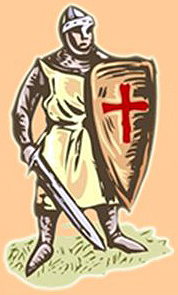|

 Explorers, Scientists &
Inventors
Explorers, Scientists &
Inventors
 Musicians, Painters &
Artists
Musicians, Painters &
Artists
 Poets, Writers &
Philosophers
Poets, Writers &
Philosophers
 Native Americans & The Wild
West
Native Americans & The Wild
West
 First Ladies
First Ladies
 Popes
Popes
 Troublemakers
Troublemakers
 Historians
Historians
 Archaeologists
Archaeologists
 Royal Families
Royal Families
 Tribes & Peoples
Tribes & Peoples

Assassinations in History
Who
got slain, almost slain, when, how,
why, and by whom?
 Go to the
Assassination Archive
Go to the
Assassination Archive




Online History Dictionary A - Z
All-Time Records in
History
What was the
bloodiest battle, the battle with the least
casualties, who was the greatest military leader?
 Go to
Records in History
Go to
Records in History

|
|
Xhosa Wars 1779-1879
The Xhosa Wars are also called the Cape Frontier Wars.
Back in the days, these wars were also called Kaffir Wars.
|
|
About the Term Kaffir
"Kaffir" was a historical label used primarily by European settlers to describe the Xhosa people
and other indigenous groups in Southern Africa.
The word has its origins in the Arabic term kāfir, meaning "non-believer" or "disbeliever," and was
initially used without racial connotation.
But over time, it evolved into a derogatory term in
South Africa, particularly during the colonial and apartheid eras. The use of "Kaffir" reflected the
colonial mindset and was employed to denote indigenous groups as inferior or uncivilized.
In contemporary usage, "Kaffir" is considered a racial slur and is regarded as hate speech under South
African law due to its pejorative connotations and historical context of oppression.
Where Were the Xhosa Wars fought?
In the eastern frontier region of Cape Colony, South Africa.
|
Who Fought the Xhosa Wars?
The European settlers vs. the Xhosa.
The Xhosa are a Bantu ethnic group native to South Africa, and after the Zulu second-largest
ethnic group in the country. Their language is isiXhosa, characterized by its use of click sounds.
The first major conflict erupted during the Sixth Xhosa War in 1834 when a large Xhosa force attacked
British settlements.
Subsequent wars followed as tensions escalated due to land encroachments by European settlers
and retaliatory raids by both sides. The wars often ended in stalemates, with neither side
achieving lasting dominance.
By the end of these conflicts, most Xhosa lands had been absorbed into British-controlled
territories.
Who Won the Xhosa Wars?
The white folks. As per usual.
Why Were the Xhosa Wars Fought?
Disputes over land and
cattle.
What Were the Dates of the Xhosa Wars?
All in all the Xhosa Wars were fought over a period of a hundred years. In detail, the fighting
can be split into the following nine wars:
- First Xhosa War: 1779-1781
- Second Xhosa War: 1793
- Third Xhosa War: 1799-1802
- Fourth Xhosa War: 1811-1812
- Fifth Xhosa War (War of Nxele or Makana): 1818-1819
- Sixth Xhosa War (Hintsa's War): 1834-1835
- Seventh Xhosa War (War of the Axe): 1846-1847
- Eighth Xhosa War (War of Mlanjeni): 1850-1853
- Ninth Xhosa War: 1877-1879
Here is the map of South Africa since
1815.

SOUTH AFRICA
Click map to enlarge
And here is the map of South
Africa in 1870 (see inset).

Africa in 1870
Click map to enlarge
More History
|